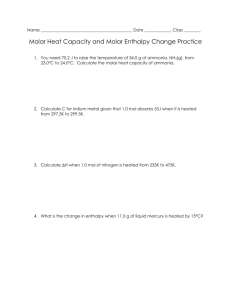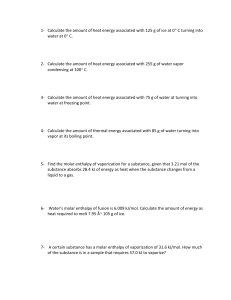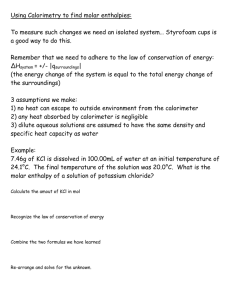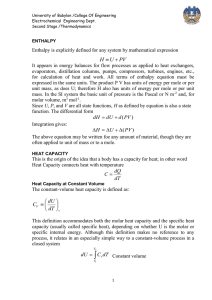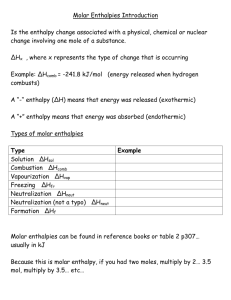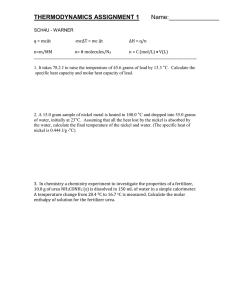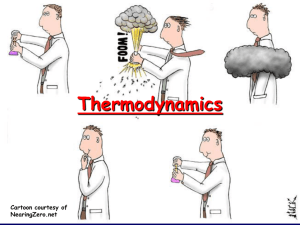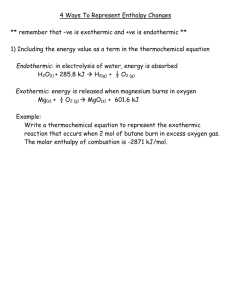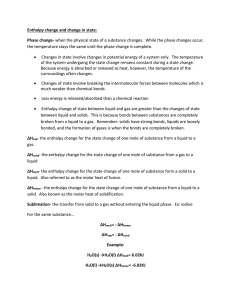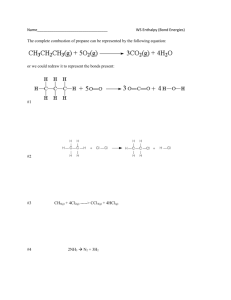MOLAR ENTHALPY
advertisement
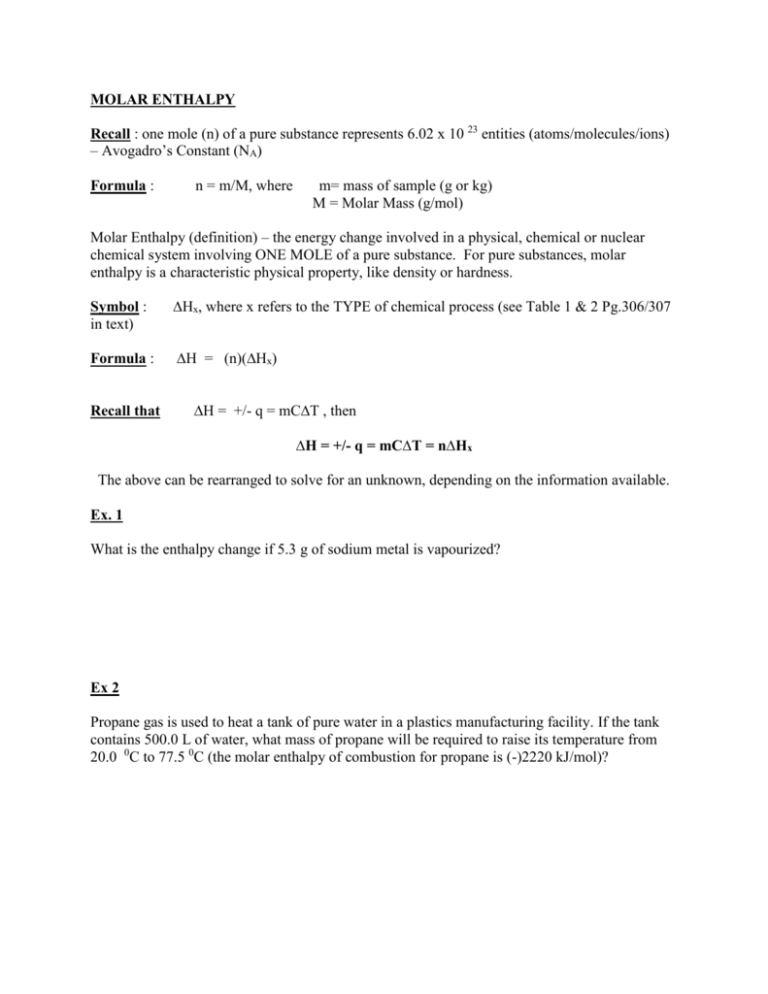
MOLAR ENTHALPY Recall : one mole (n) of a pure substance represents 6.02 x 10 23 entities (atoms/molecules/ions) – Avogadro’s Constant (NA) Formula : n = m/M, where m= mass of sample (g or kg) M = Molar Mass (g/mol) Molar Enthalpy (definition) – the energy change involved in a physical, chemical or nuclear chemical system involving ONE MOLE of a pure substance. For pure substances, molar enthalpy is a characteristic physical property, like density or hardness. Symbol : in text) ∆Hx, where x refers to the TYPE of chemical process (see Table 1 & 2 Pg.306/307 Formula : ∆H = (n)(∆Hx) Recall that ∆H = +/- q = mC∆T , then ∆H = +/- q = mC∆T = n∆Hx The above can be rearranged to solve for an unknown, depending on the information available. Ex. 1 What is the enthalpy change if 5.3 g of sodium metal is vapourized? Ex 2 Propane gas is used to heat a tank of pure water in a plastics manufacturing facility. If the tank contains 500.0 L of water, what mass of propane will be required to raise its temperature from 20.0 0C to 77.5 0C (the molar enthalpy of combustion for propane is (-)2220 kJ/mol)?
